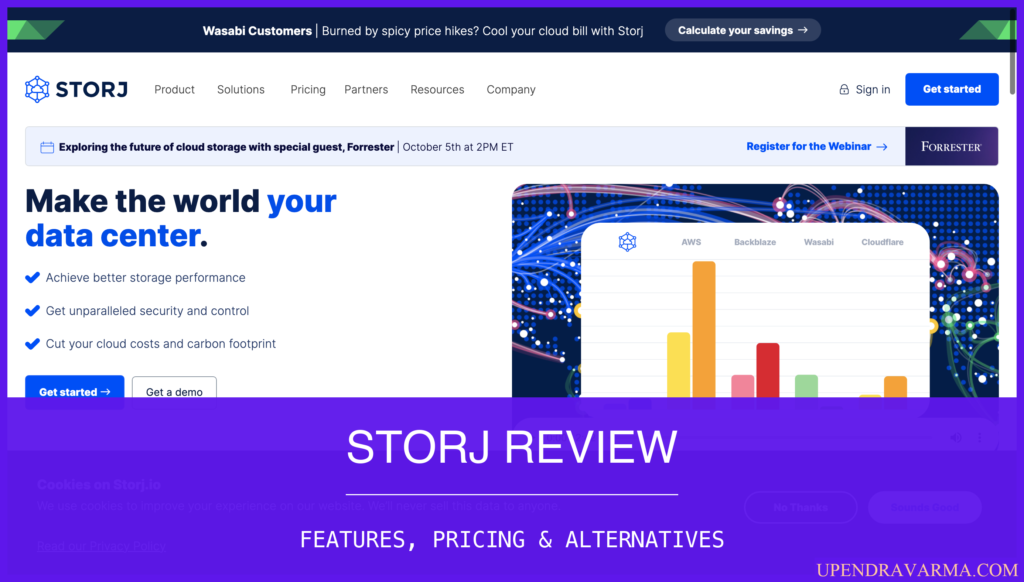*Hey there fellow tech enthusiasts! Welcome to my blog, where I review the latest and greatest software products in the market. Today, we're diving deep into Qovery, an Internal Developer Platform that promises to revolutionize the way developers work. So, fasten your seatbelts and let's explore the features, pricing, and alternatives of Qovery together!*
You can check out their website at qovery.com.
Qovery Review: What is Qovery
Qovery is an Internal Developer Platform that cuts through the noise and provides developers with paved paths to production. It offers a range of features like testing, ephemeral environments, and actionable insights to improve software quality. In a nutshell, Qovery aims to simplify the lives of developers and streamline the software development process.
Qovery Review: How can it be used?
Qovery can be used by a wide range of users, from individual developers to large enterprises. Whether you're a startup looking to accelerate your development process or an established company aiming to optimize your infrastructure, Qovery has got you covered.
With Qovery, you can automate the provisioning of infrastructure assets into ready-to-run environments, eliminating the manual work involved in setting up environments for development, QA & testing, or IT operations. It provides self-service control to DevOps teams, empowering them to manage their infrastructure efficiently. Qovery integrates seamlessly with your existing tools and workflows, making it easy to incorporate into your development process without any additional setup.
Qovery Review: Who is it for?
Qovery caters to a diverse range of user profiles and industries. Here are some of the user segments that can benefit from Qovery:
- Startups and small businesses looking to streamline their development process
- DevOps teams seeking self-service control over their infrastructure
- Enterprises looking to optimize their cloud costs and improve team velocity
- Software development agencies aiming to accelerate their delivery timelines
- Individual developers who want to simplify their deployment process
Qovery Features
Qovery offers a comprehensive set of features that can be categorized into the following buckets:
Environment Provisioning:
- Automate provisioning of infrastructure assets into ready-to-run environments
- Eliminate manual work and fulfill requests for environments quickly
- Ideal for application development, QA & testing, or IT operations
Self-Service & Integrations:
- Empower DevOps teams with self-service control over their infrastructure
- Easily integrate with existing tools and workflows for a seamless experience
- No need for additional setup or integration efforts
Governance & Custom Policies:
- Set custom policies and governance controls to ensure compliance
- Maintain control over your infrastructure and enforce best practices
- Easy management of regulations and security requirements
Security & Control:
- Ensure the security and control of your infrastructure assets

- Multi-factor authentication, fine-grained access controls, and secure communication between components
- Prioritize the protection of your assets and data
Cost Optimization:
- Optimize cloud costs through various measures
- Share load balancers between services and automatically shut down unused environments
- Partnerships and integrations with major cloud providers for further cost reduction
Qovery Plans
For a more in-depth review of Qovery's pricing, including different plans and features, head over to my blog post on qovery pricing. You'll find all the information you need to make an informed decision about which plan suits your needs the best.
Qovery Alternatives
Heroku
Heroku is a popular platform for building, deploying, and scaling web applications. This platform-as-a-service (PaaS) supports several programming languages and allows developers to focus on the design and development of their application without the need to manage the underlying infrastructure. With its robust ecosystem of add-ons, developers can easily add services such as data stores, monitoring tools, and email services to their applications. In addition, Heroku's intuitive interface and strong documentation make it user-friendly, even for beginners.
AWS Elastic Beanstalk
AWS Elastic Beanstalk is a fully managed service from Amazon Web Services that facilitates the deployment and running of applications. It automatically handles the details of capacity provisioning, load balancing, and application health monitoring. Elastic Beanstalk supports a wide range of programming languages and application platforms such as Java, .NET, PHP, Node.js, Python, Ruby, Go, and Docker. It's an excellent choice for developers who wish to have more control over their application's environment while still benefiting from the simplicity of a PaaS.
Google Cloud Run
Google Cloud Run is a serverless platform that automatically scales your applications based on traffic. It's designed to make it easy to deploy and run stateless containers, allowing developers to focus on writing high-quality code without the need to manage server infrastructure. An advantage of Cloud Run is its ability to execute code in response to HTTP requests which makes it ideal for microservices, mobile backends, and API applications. Additionally, it seamlessly integrates with other Google Cloud services, offering developers a comprehensive ecosystem for their application needs.
DigitalOcean App Platform
DigitalOcean App Platform is a fully managed platform for deploying and scaling apps. The platform simplifies the deployment process by automatically analyzing code, creating containers, and running them on Kubernetes clusters. It supports several programming languages including Python, Node.js, Go, and PHP. One of the standout features of the DigitalOcean App Platform is its ability to automatically secure apps by creating, managing, and renewing SSL certificates, allowing developers to ensure their applications are always secure.
Qovery Review: Pros & Cons
Pros of using Qovery:
- Streamlined development process with automated provisioning
- Self-service control over infrastructure for DevOps teams
- Easy integration with existing tools and workflows
- Robust governance and custom policy controls
- Cost optimization measures to reduce cloud expenses
Cons of using Qovery:
- Limited visibility into resource usage and cost-saving recommendations
- Relatively new in the market compared to more established alternatives
Conclusion
Qovery offers a powerful Internal Developer Platform that can significantly improve the productivity of your development teams. With its range of features, seamless integrations, and cost optimization measures, Qovery is definitely worth considering for your software development needs.
If you're interested in exploring more SaaS product reviews, make sure to check out my blog at saas blog. I cover a wide range of software products and provide in-depth reviews to help you make informed decisions.
So, what are you waiting for? Give Qovery a try and unlock the true potential of your development process!










